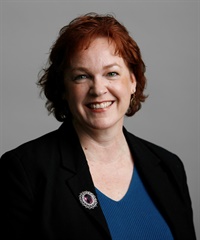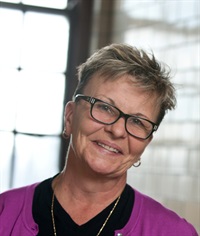Overview of the Nature and Treatment of Trauma
Credit Available - See CEs/Contact Hours tab below.
Total Credits: 6. NYSED LMSW & LCSW CEs/Contact Hours, 6. NYSED LMHC CEs/Contact Hours, 6. NYSED LMFT CEs/Contact Hours, 6. NYSED LCAT CEs/Contact Hours, 6. UB Online Trauma-Informed Clinical Foundation Certificate- foundation course, 6. UB Trauma-Informed Care & Counseling Certificate- foundation course, 6. UBSW - NYS OASAS
- Average Rating:
- 19
- Categories:
- Trauma and PTSD
- Trainers:
- Susan Green, LCSW | Elaine Hammond, LMSW
- Duration:
- 5 Hours 51 Minutes
- Format:
- Audio and Video
- Original Recording Date:
- Dec 20, 2015
Tags: Self-Study
Description
This course provides an overview of psychological trauma including history, biology, historical trauma, PTSD, ASD, complex trauma, attachment, development, population considerations, evaluation, assessment, treatment considerations and vicarious traumatization.
“In the United States, 61 percent of men and 51 percent of women report exposure to at least one lifetime traumatic event, and 90 percent of clients in public behavioral health care settings have experienced trauma. If trauma goes unaddressed, people with mental illnesses and addictions will have poor physical health outcomes and ignoring trauma can hinder recovery. To ensure the best possible health outcomes, all care — in all health settings — must address trauma in a safe and sensitive way.” Source- http://www.integration.samhsa.gov/clinical-practice/trauma
Learning Objectives:
1. Describe the historical foundations of trauma and posttraumatic stress disorder;
2. Identify trauma specific disorders including symptomatology;
3. Distinguish differences in types of posttraumatic stress disorder;
4. Recognize the neurobiological basis and impact of trauma;
5. Recognize the importance of dissociative components of posttraumatic stress disorders;
6. Explain the cognitive and social impact of trauma;
7. Describe the assessment process for posttraumatic stress disorder;
8. Explain trauma conceptualization and treatment considerations;
9. Recognize signs of vicarious traumatization;
10. Explain factors associated with post-traumatic growth and vicarious resilience.
Module Outline:
Introduction
History Overview
Biology and trauma
Historical Trauma
PTSD and ASD
Complex Trauma
Overview of attachment, development and population considerations
Trauma-based Conceptualization
Treatment Considerations
Vicarious Traumatization and Post-traumatic Growth
Handouts: If it makes it easier for you to follow the course videos and take notes, we recommend you print your handouts from the Materials section and have them available as you watch the video modules. PowerPoint’s and other handouts are in the ‘Handouts’ tab of the course. They can be saved to your computer or printed.
Readings, Resources, and Assessment tools: refer to the Handout section of your course for this information.
Target Audience: This course is appropriate for all levels of clinical and other human service staff who need foundational information on psychological trauma.
Course Availability: You have unlimited access to the course.
ADA accommodations: If you require supports for your ADA needs in the United States, please contact us in advance by email at sw-ce@buffalo.edu or phone at 716-829-5841.
Customer service: We are happy to respond to any questions or concerns you may have. Please contact us by email at sw-ce@buffalo.edu or phone at 716-829-5841.
Course Completion:
Click on the Evaluation & Certificate button in My Courses to take the course evaluation and quiz. Based on best continuing education practice, quizzes are included to verify your acquisition of knowledge. A score of 80% is needed to pass. You may retake the quiz if you do not achieve a passing score the first time. Upon successful completion of the quiz, you will be able to save and print your Certificate of Course Completion for this course with any applicable CEUs/Contact Hours listed in the Credits tab of the course description.
Lead Instructor: Susan A. Green, LCSW, is one of our most popular instructors. Sue is a certified EMDR therapist with certification in Advanced Critical Incident Stress Management, Cognitive Processing Therapy and Trauma-Focused Cognitive Behavioral Therapy. She works part-time as a trauma therapist and clinical supervisor for therapeutic foster care in Buffalo, New York. Sue is a full time Clinical Associate Professor at the University at Buffalo, School of Social Work, and co-director of the School's Institute on Trauma and Trauma-Informed Care. Sue trains locally and nationally. She has also presented at conferences in Canada and in the Netherlands.
Biology Section Instructor: Elaine Hammond, LMSW has been employed in the field of social work for over thirty-five years, working with a wide variety of client systems. She is dedicated to praxis models that integrate the best in evidence-based practice, authentic relationship and creativity in support of the body, mind and spirit of client systems and practitioners, alike. She has had the opportunity to study with teachers as varied as Herbert Benson, Bessel van der Kolk, Carolyn Myss, Jon Kabat-Zinn and Thich Nhat Hanh in academic, retreat and online settings. In the past ten years Elaine has helped to develop courses in Trauma & Human Rights, Social Context & Human Biology, and Spirituality at the University at Buffalo School of Social Work, and in Mindfulness and Professional Development at the School of Law. In addition to teaching, she trains and consults and presents in trauma theory, biology of trauma, self-care and mindfulness-based interventions. Elaine has a small private practice where she works with very young children and their families as well as with adults whose traumatizing event occurred in early childhood. She mentors practitioners of many disciplines who are looking to integrate mindfulness in their practices, as well as working with practitioners experiencing their own life challenges.
CEs/Contact Hours
University at Buffalo School of Social Work, Office of Continuing Education is recognized by the New York State Education Department's State Board for Social Work as an approved provider of continuing education for licensed social workers #SW-0001. Continuing education contact hours: 6. Self Study
University at Buffalo School of Social Work, Office of Continuing Education is recognized by the New York State Education Department's State Board for Mental Health Practitioners as an approved provider of continuing education for licensed mental health counselors #MHC-0008. Continuing education contact hours: 6. Self Study
University at Buffalo School of Social Work, Office of Continuing Education is recognized by the New York State Education Department's State Board for Mental Health Practitioners as an approved provider of continuing education for licensed marriage and family therapists #MFT-0007. Continuing education contact hours: 6. Self Study
University at Buffalo School of Social Work, Office of Continuing Education is recognized by the New York State Education Department's State Board for Mental Health Practitioners as an approved provider of continuing education for licensed creative arts therapists #CAT-0003. Continuing education contact hours: 6. Self Study
6. Hours
6. Hours
NYS OASAS Provider #0045: 6. hours for CPP & CPS Initial hours, Section 1; CASAC, CPP & CPS Renewal hours.
Handouts
| Course Outline (0.05 MB) | 3 Pages | Available after Purchase |
| PowerPoints (2.13 MB) | 38 Pages | Available after Purchase |
| Podcast-Article-Website Links (0.09 MB) | 3 Pages | Available after Purchase |
| Reading 1 (1.32 MB) | 14 Pages | Available after Purchase |
| Reading 2 (1.09 MB) | 14 Pages | Available after Purchase |
| Reading 3 (1.84 MB) | 16 Pages | Available after Purchase |
| Reading 4 (0.95 MB) | 12 Pages | Available after Purchase |
| Reading 5 (1.78 MB) | 33 Pages | Available after Purchase |
| Reading 6 (3.96 MB) | 46 Pages | Available after Purchase |
| Reading 7 (1.74 MB) | 15 Pages | Available after Purchase |
| Trauma Case Scenarios (0.05 MB) | 13 Pages | Available after Purchase |
| Assessment tool information (0.16 MB) | 1 Pages | Available after Purchase |
| Assessment tool information (0.01 MB) | Available after Purchase | ||
| Assessment tool information (0.03 MB) | Available after Purchase | ||
| Assessment tool information (0.05 MB) | Available after Purchase | ||
| Assessment tool information (0.04 MB) | Available after Purchase | ||
| Assessment tool information (7.1 KB) | Available after Purchase | ||
| Assessment tool information (0.16 MB) | Available after Purchase | ||
| Assessment tool information (0.09 MB) | Available after Purchase | ||
| Assessment tool information (1.43 MB) | Available after Purchase | ||
| Assessment tool information (0.05 MB) | Available after Purchase | ||
| Assessment tool information (0.23 MB) | Available after Purchase | ||
Trainer

Susan Green, LCSW Related Seminars and Products
Clinical Professor
UB School of Social Work
Susan A. Green, LCSW, is one of our most popular instructors. Sue is a certified EMDR therapist with certification in Advanced Critical Incident Stress Management, Cognitive Processing Therapy and Trauma-Focused Cognitive Behavioral Therapy. Sue is a full time Clinical Professor at the University at Buffalo, School of Social Work, and director of the School's Institute on Trauma and Trauma-Informed Care. Sue trains locally and nationally, and has done international presentations on trauma and trauma-informed care.

Elaine Hammond, LMSW Related Seminars and Products
Elaine Hammond, MSW, has been employed in the field of social work for over thirty-five years, working with a wide variety of client systems. She is dedicated to praxis models that integrate the best in evidence-based practice, authentic relationship and creativity in support of the body, mind and spirit of client systems and practitioners, alike. She has had the opportunity to study with teachers as varied as Herbert Benson, Bessel van der Kolk, Carolyn Myss, Jon Kabat-Zinn and Thich Nhat Hanh in academic, retreat and online settings. In the past ten years Elaine has helped to develop courses in Trauma & Human Rights, Social Context & Human Biology, and Spirituality at the University at Buffalo School of Social Work, and in Mindfulness and Professional Development at the School of Law. In addition to teaching, she trains and consults and presents in trauma theory, biology of trauma, self-care and mindfulness-based interventions. Elaine has a small private practice where she works with very young children and their families as well as with adults whose traumatizing event occurred in early childhood. She mentors practitioners of many disciplines who are looking to integrate mindfulness in their practices, as well as working with practitioners experiencing their own life challenges.



